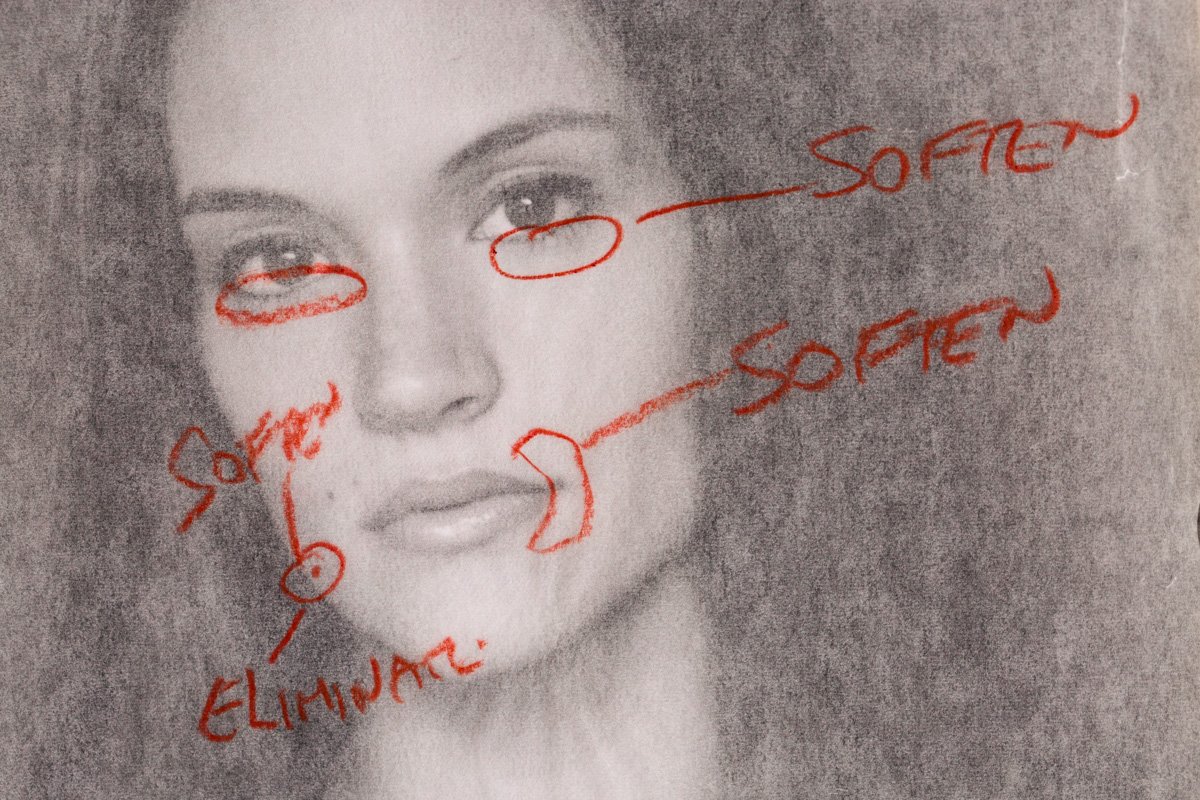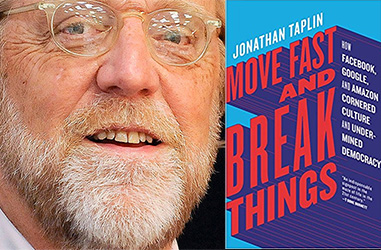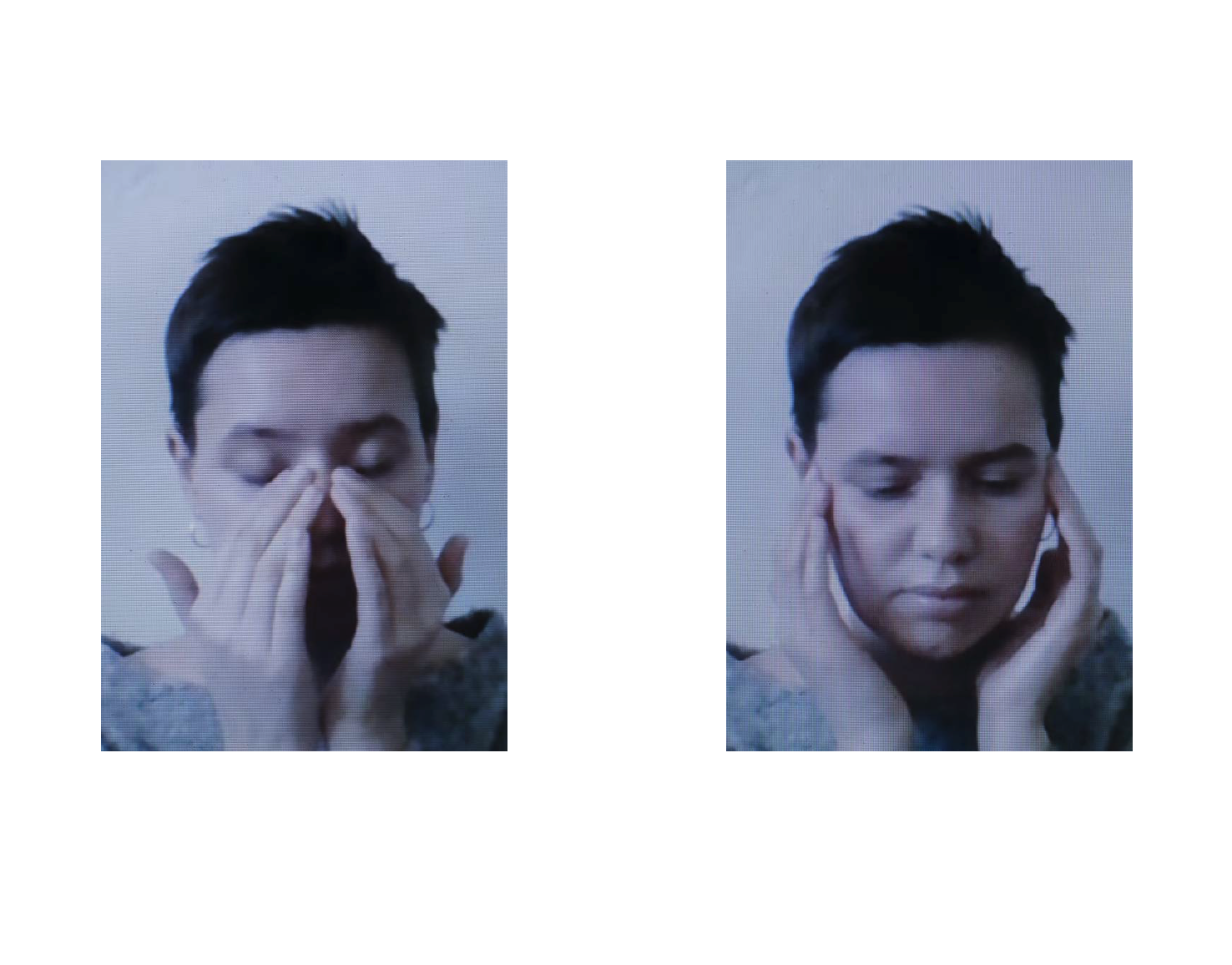"Even as a young girl, it was very obvious to me that my body - and the way people viewed my body - was going to be part of my experience as a human on this planet. "—Jamie Schofield Riva, in our interview on the power and scrutiny of beauty.
Trying to Get Along in Your World: An Interview with Jessica Dimmock
In her short film The Convention, American photographer and filmmaker Jessica Dimmock (b. 1978) portrays the emotional whirlwind of the annual Esprit Conference, a week-long convention of transgender women mainly in their fifties, sixties and seventies. Now in its 25th year, the meeting takes place in a logging town in northern Washington, and provides space for camaraderie, education, mutual support and self-expression. Many attendees have lived their lives in the roles defined by their birth gender, and as such, are in various stages of accepting themselves, or being accepted by others, for their chosen gender identity. For most, Esprit is the one week in the year in which they’re able to inhabit their female selves. Dimmock was in Amsterdam to accept a prize for the Multimedia Contest of the 2017 World Press Photo Awards, and she sat down with us to speak about the convention, the nature of an authentic self, and the world’s changing views on gender fluidity.
Tell us about the Esprit Convention and how you came upon it.
Five years ago, I went hiking in this town in northern Washington, just to take a couple of days off, and I kind of randomly picked a town on the map called Port Angelis, which sounded like a beautiful, quaint fishing village. In reality, it’s kind of this shitty logging town and I checked into this random hotel and, unbeknownst to me, there was a large congregation of 150 or so transgender women. They’re all in later life – in their fifties, sixties, seventies – and every year they gather at this place. I had just walked into the middle of it.
I was really moved by it, and so I’ve since gone back every year to look at this group of trans women who get together in a very secretive way. Most of them are still closeted, and they picked this town that’s really remote because it’s an opportunity to come out and not be seen by neighbours, friends and people they work with.
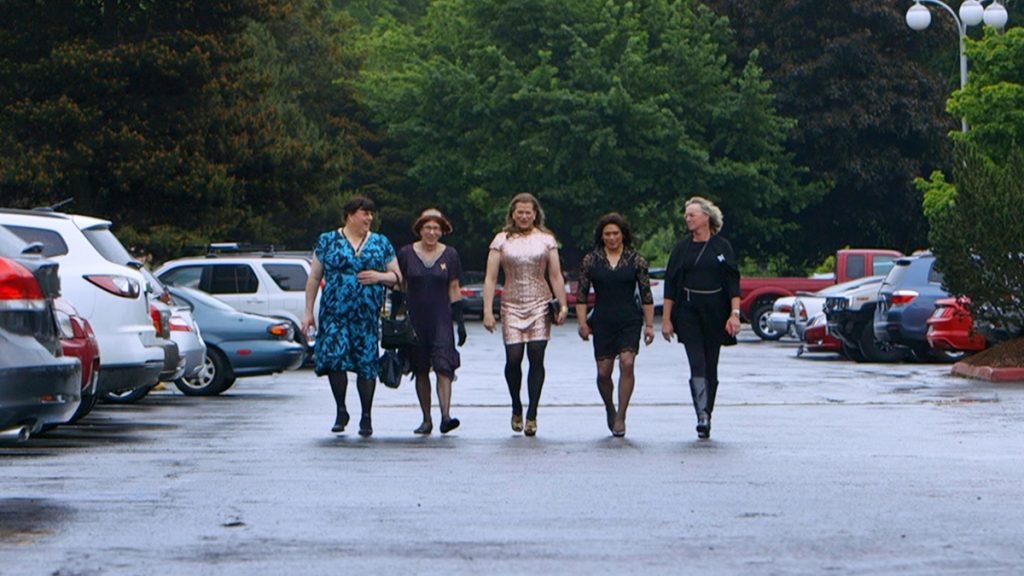
Considering how many of them are still in the closet, why do you suppose they wanted to be involved in your documentary project? Where was the balance between privacy and exposure?
This was the thing that really surprised me; there were some people who were just starting their transition and were willing to be out and be shown. There were lots of people there who were supposedly on a ‘week-long fishing trip’ or at some ‘business conference’, and their wives think that they’re off with their buddies, when in reality, they’re there at Esprit, fully expressing their female identities. The interesting thing is that most of those women who live full-time as men believe that they wouldn’t be recognized in female form, so they’re willing to be really open. They maybe don’t want to be the star character, but have been totally comfortable in showing themselves in female mode, knowing that they’re so unrecognizable.
There were a couple of people that were like, “I just cannot be seen,” but they were still supportive of the filming and the project. I would say out of 150 people, there were maybe only four of them.
It’s a really common factor in documentary projects, and over the years, I’ve come to think that the one common denominator is that people just feel validated by having an underground story brought up. I think that’s what’s going on here. There is some risk for them, but the bigger risk is that no one in the world will ever know them, and that’s more painful. So, being somewhat vulnerable and honest about who they really are, even if it comes with some risk, has become worth it for them.
Possibly it’s another step in their journey to becoming more the person they believe themselves to be?
I think so. I made a feature documentary about the same subjects, entitled The Pearl, which I co-directed with Christopher LaMarca, in which I follow four women that I’ve met at Esprit over three years, and for some of the people that we started working with were totally closeted… like, married to a wife for 40 years with 3 kids and grandchildren, and no one knew. By the end of the project, those people had started coming out, and so I think for some it was the beginning of their transition. For some, it became a bit of a mirror of how closeted they were, because in the process of filming, they would come to realize, “Oh my family doesn’t fucking know what’s going on at all.” So, I think it propelled them forward or at least gave them the chance to look at where they are on the spectrum.
I mean, everyone wants to be who they are – and these women are no different. They desperately want to come out, they just can’t; they have families and jobs and kids. So, I think it helps move it forward.
For some, it became a bit of a mirror of how closeted they were
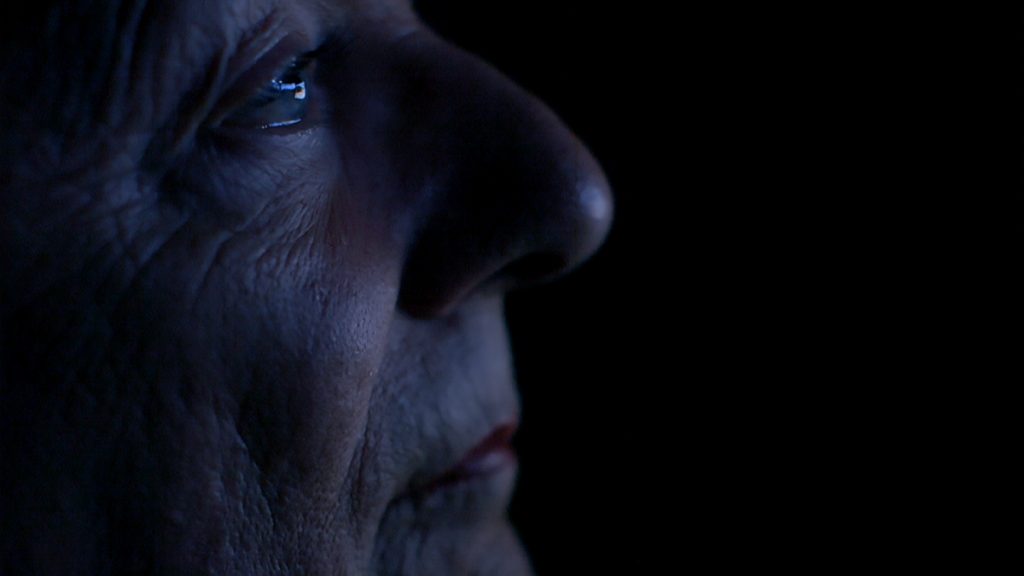
How do you see the Esprit convention’s role in the transition from what might be just playing with curiosity to fulling expressing an identity?
The reason I’ve been so obsessed with this place for a few years now is that the people who are going have a median age of, let’s say, sixty. They’re not out full-time – no one that’s out full-time needs to go to this thing. If you’re out full-time, you can go to your local bar, or there’s a LGBT club in town. These are people that have really no way of expressing this. They’ve known this about themselves their entire lives, but they grew up in a time and a place where it was not acceptable, and they’ve shoved it down. This is the one outlet.
A lot of them say, “I want to get a little bit better at dressing”, and “I want to know a couple of other people like me”. Because some of them grew up thinking that they were the only people on the planet like this. Everyone knew what being ‘gay’ was, but a lot of the people here just thought, “I don’t know what the fuck is wrong with me, and I must be the only one that feels this way.” And it starts by wanting to meet a friend or two.
By the end of that week, things have really changed, which can be problematic for people. It’s a good problem, but it creates a lot of chaos. The first couple of days, they’re like, “I’m just going to dress and express”, and by the end of the week they’re like, “Oh, I can’t go back!” When they’ve spent 24 hours as their female selves, and then 48 hours… and they wake up as their female selves, and go to sleep in their female selves, and the next morning they’re in their female selves again, they’re start to feel it: “I don’t want to put this girl back inside anymore.” It creates a lot of chaos in people’s lives, but overall that’s a good thing.
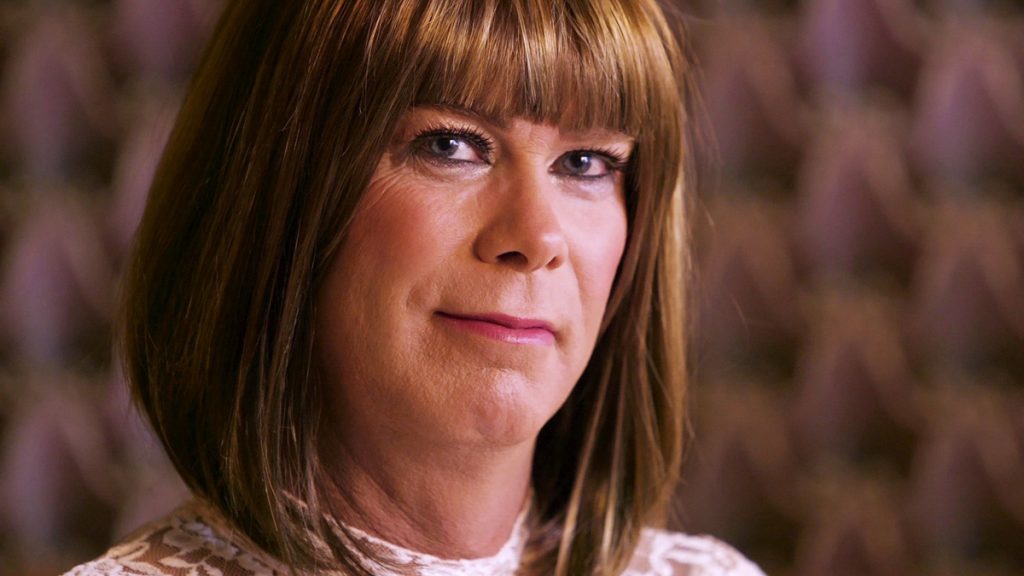
The project really brings to mind the question of what an ‘authentic self’ is. The convention is a week long, and I think we all feel a little different, or a little more alive, on holiday. To what extent do you think that’s a factor here?
These are the undercurrents that I’ve always found from being there. There’s one version that’s happy, exuberant, celebratory – there’s dressing up and dancing and a ton of drinking. But, underneath all of that is this real undercurrent of sadness, which is based on the fact that no one would need this week if the other 51 weeks of the year had any semblance of this in their lives.
The fact that this is one week – and it’s a great week – really underscores the idea that the other 51 weeks of the year look nothing like this. So, this thing that you’re asking is very true: they’re being their most authentic selves, but it’s not really what their lives are like.
There’s this thing called ‘blue Mondays’ that they really talk about a lot there, especially for the new girls. The women who have been there year after year are really there for the new crop, to help prepare them, and they say, “Listen, when you go back it’s going to be very hard.” A lot of girls are calling with depression and reaching out. There’s a lot of people saying, “I can’t do this anymore.” I think it underscores how inauthentic so much of their lives are, and not because it’s their fault, not because they’re not being honest with people, but because they’ve got very complicated circumstances.
There’s a character in your short film who’s describing how some people in her life felt tricked when she came out, and she says, “I’m just trying to get along in your world.” What’s so striking about this moment is that he’s expressing a kind of isolation from his experience, but at the same time, that’s something we have all felt. How do you view this unique versus universal experience?
This is one of the reasons that I felt very connected to them when I met them. For all intents and purposes, my version of all this is easy: I was born with all the right parts, they’re all relatively in the right shape and size, and they all kind of land where they’re supposed to, and yet, as with most women, I hate myself a lot of the time, and I’m very uncomfortable in my own skin. It’s a cliché, but women really struggle with this stuff. And here was this group of women who had all lived as men, are still kind of living as men. Everything is in the wrong place, and everything is in the wrong size and shape, and it sucks to try to be a woman when you’ve had like 60 years of testosterone going through your veins.
They’re in a lot of ways trapped not only in male bodies but in male identities. These are people that have always known that they’re women, even as 5 or 10 year olds, but they couldn’t ever come out with that. They did a really good job of putting a masculine identity on themselves, because that’s what was dictated. At Esprit, they’re taking it off. They’re finally saying, “I have to be who I am, and I’ve got to figure out a way to accept myself and love myself and be okay.” And I felt so moved by that, because of course it’s very unique to a set of circumstances, but we’re all trying to do this. They’re very brave in it. I don’t know that I could do it.
Her kids are asking, “What happened to my big, masculine dad?”
It sounds like everything comes down to a burden of expectations.
I think you’re right, it’s this burden of expectation that makes the story universal. In their case it’s exaggerated, but it’s still there: this is what happens when everyone expects something from you and you can’t deliver on it.
What is her situation?
In Erika’s case, I think she’s the most honest about it: she’s a dad, she’s got 3 kids, she’s been known as this very masculine character for all of her life, and the people that she loves most relate to her as masculine. I think what she’s trying to say is that she did all of that because it was what was expected. She thought it would make everyone else more comfortable but it’s made her very unhappy. Now that she’s trying to be something different, her kids are asking, “What happened to my big, masculine dad?” Her kids don’t want to accept that she’s got fake breasts, a ponytail and eye make-up, and that’s been a real problem for her.
I know the kids, I like them a lot. They’re not assholes for thinking that way, and this is where it gets so complicated, too. They want their dad. And ‘their dad’ means a certain thing. They want their dad to be happy and to be who he is. But… I can’t imagine that I wouldn’t feel duped, too. Here’s this really strong, kind of Clark Griswold character that’s cutting down trees and fixing up cars and solving problems, and has so excelled in this type of role … when you’ve put all this masculinity on and then you want to take it off, it challenges everyone around you.
That’s been the real challenge for them. How do you take all of this stuff that everyone expects from you, and remove it and still have an identity at all? Let alone one that other people can relate to. Or even how do you relate to yourself? Once you take all that stuff off, what’s underneath? It takes a while to figure it out.
It would be the same thing with me, if I had to stop working, stop looking the way I look, and stop talking about the things I’ve said I’m interested in. If I had to remove all those identity markers for myself, I would be very confused about who I was.
They’re in a lot of ways trapped not only in male bodies but in male identities.
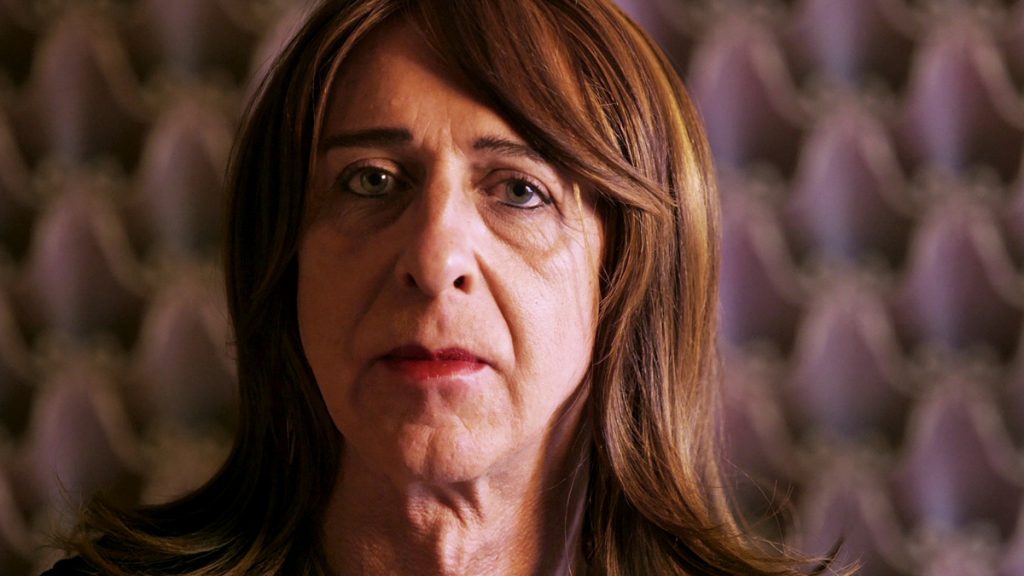
What makes the convention so fascinating is their age – while society’s acceptance for gender fluidity keeps improving, these are clearly women of a former generation. Do you think that will mean a stopping point for this convention?
I think so. I think the Esprit Convention will not exist in another ten years, maybe even five, and I think in a lot of ways that’s be a great thing because it means it’s not necessary.
When I walked into the story, I all of a sudden became aware of how much the trans stories that are out right now really skew to the very young and also the very passable. Both of those things are very important, however, the very young have a different set of circumstances, and the very passable (like people who are in their thirties but dress better than me and have better bodies than I do, and better makeup than I do) are going to have a very different experience. When you’re sixty and your entire social structure is based around the fact that you’re a man – and a masculine man – the stakes for coming out are really high. You could really lose your wife, who by the way, you might be totally in love with, you can lose your children, you can get fired from work, you can lose all your friends.
I do think they’re kind of a dying breed, and that’s a good thing. For the later generations, it’s a totally different world.
How does the week unfold for you, as a photographer/filmmaker?
Everyone kind of knows me because I’ve been going for so long. Everyone knows that I’m going to have a camera. There’s a lot of classes, seminars and educational things (like learning how to speak or walk in a feminine way) and I like incorporating those a little bit into the film work because it gives a context of why people are there, but I’m always really drawn to these off-moments at the end of the night. They all just congregate in hotel rooms – there’s nothing sexual about the conference – I just mean they’re in pyjamas and comfy clothes and they’re just sitting around and talking, and that’s what I like to shoot. I stay at the hotel too, and I wander the halls and knock and ask if I can come in, and the answer is almost always yes.
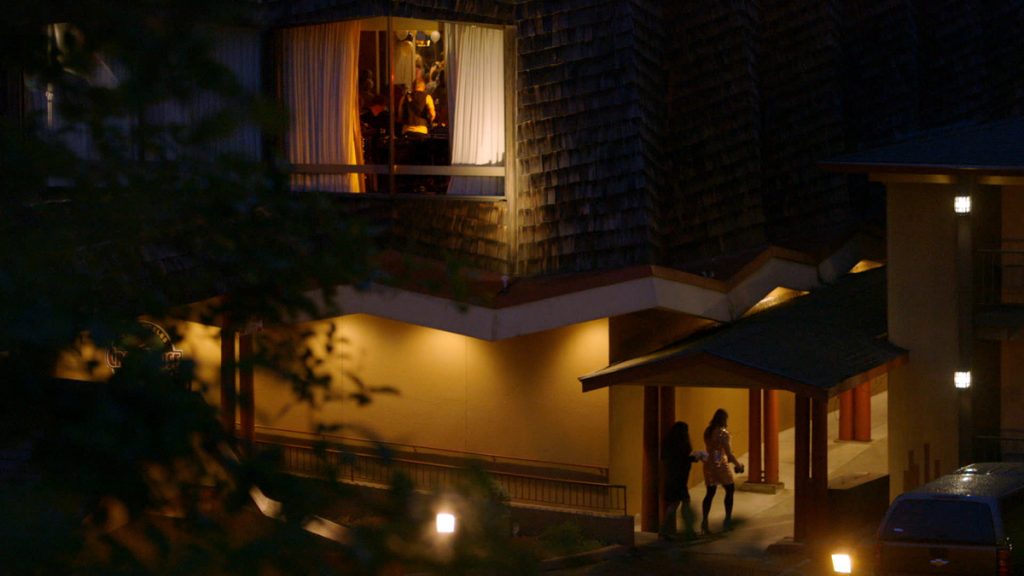
I also find it really interesting to see this large hotel from the hotel, with all these little rooms, and in each little room at night you can see the different groupings of people. There’s something that has struck me as beautiful and lonely about that, which is that they come together, but they’re still in these kind of square little corners, getting together here and there. Some of them come but never leave their hotel rooms. So, I always think, in one of those rooms, someone is just afraid to leave the room. Everyone drinks a lot, I always drink a lot. I feel like I’m half-drunk the whole time. It’s real fun.
You’ve shifted from being primarily a still photographer into filmmaking. How has that been?
I started doing film around seven years ago, and I still do both but I don’t like doing both at the same time. Photography is such a lone wolf thing, which I love about it, but the collaborative side of filmmaking is also really enriching. The projects become smarter because when you collaborate you’re inherently talking through ideas all of the time, whereas when you’re on your own with photography, you’re just bouncing things off of yourself. In the making of the feature film that’s connected to the same topic, me and my co-director, Chris LaMarca, would wake up in the morning and talk about it, we’d be at breakfast and we’d talk about it, we’d go out for dinner and talk about it, we’d be downloading our footage at night and talking about it. So, we’re always elevating and progressing and developing the conversation, and therefore the ideas in it just got to be bigger, more articulated, and more nuanced in their nature, and I really like that about it.
The two inform each other: I think the patience of photography, and the patience that you learn in photography to get something exactly right is really helpful. Had I not come from a photography background, I’d be a lot more rushed in filmmaking. And because filmmaking requires so much connective tissue and so you just have to collect so much more, means that the amount of time your eye is looking through a lens is much greater compared to photography. I realized after doing it, my eye was much sharper. It’s a muscle, and it was strong.
Do you see a common thread in the stories you choose, regardless of still or motion?
Totally. The type of stories that interest me are very much stories about human loneliness, isolation, people having a hard time connecting to themselves and others. I really like specific cultures or groups, who have a strong sense of identity and are maybe just beyond a wall, or a little hard to access.
Again, I didn’t read an article about the Esprit Convention and then decide to make something, I was just living in the world and bumped into it, which is exactly how I found The Ninth Floor, and some other projects. It’s always about just being in the world and being open.
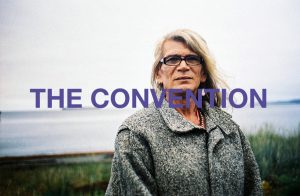
This interview with Jessica Dimmock was originally published on GUP Magazine. The Convention won a World Press Photo prize in the 2017 Multimedia Contest. You can see The Convention in full on Vimeo. To see more of her work, visit Jessica Dimmock’s website.

